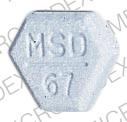Hydrochlorothiazide/timolol Interactions
There are 655 drugs known to interact with hydrochlorothiazide/timolol, along with 30 disease interactions, and 4 alcohol/food interactions. Of the total drug interactions, 55 are major, 566 are moderate, and 34 are minor.
- View all 655 medications that may interact with hydrochlorothiazide/timolol
- View hydrochlorothiazide/timolol alcohol/food interactions (4)
- View hydrochlorothiazide/timolol disease interactions (30)
Most frequently checked interactions
View interaction reports for hydrochlorothiazide / timolol and the medicines listed below.
- Blocadren (timolol)
- Celebrex (celecoxib)
- Cialis (tadalafil)
- Cozaar (losartan)
- Effexor XR (venlafaxine)
- Lipitor (atorvastatin)
- Mucinex DM (dextromethorphan / guaifenesin)
- Norvasc (amlodipine)
- ProAir HFA (albuterol)
- Requip (ropinirole)
- Seroquel (quetiapine)
- Tylenol Arthritis Pain (acetaminophen)
- Tylenol PM (acetaminophen / diphenhydramine)
- Viagra (sildenafil)
Hydrochlorothiazide/timolol alcohol/food interactions
There are 4 alcohol/food interactions with hydrochlorothiazide / timolol.
Hydrochlorothiazide/timolol disease interactions
There are 30 disease interactions with hydrochlorothiazide / timolol which include:
- bradyarrhythmia/AV block
- cardiogenic shock/hypotension
- CHF
- diabetes
- hemodialysis
- hypersensitivity
- ischemic heart disease
- PVD
- asthma/COPD
- anuria
- electrolyte losses
- liver disease
- lupus erythematosus
- renal function disorders
- renal/liver disease
- cerebrovascular insufficiency
- glaucoma
- hyperlipidemia
- hyperthyroidism
- myasthenia gravis
- pheochromocytoma
- psoriasis
- tachycardia
- Prinzmetal's variant angina
- asthma
- diabetes
- hyperlipidemia
- hyperparathyroidism
- hyperuricemia
- thyroid function tests
More about hydrochlorothiazide / timolol
- hydrochlorothiazide/timolol consumer information
- Compare alternatives
- Side effects
- Dosage information
- During pregnancy
- Drug class: beta blockers with thiazides
Related treatment guides
Drug Interaction Classification
| Highly clinically significant. Avoid combinations; the risk of the interaction outweighs the benefit. | |
| Moderately clinically significant. Usually avoid combinations; use it only under special circumstances. | |
| Minimally clinically significant. Minimize risk; assess risk and consider an alternative drug, take steps to circumvent the interaction risk and/or institute a monitoring plan. | |
| No interaction information available. |
Further information
Always consult your healthcare provider to ensure the information displayed on this page applies to your personal circumstances.


